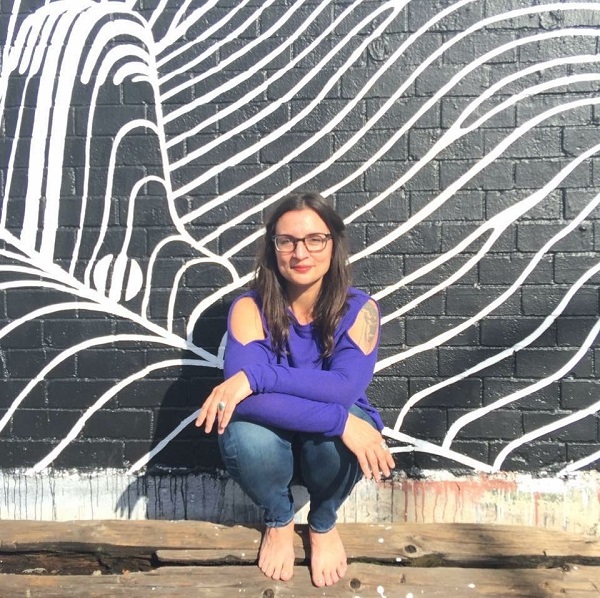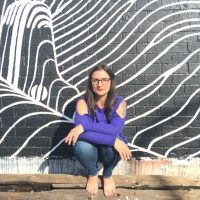
“Why don’t you have children?”
I have been asked this question many times throughout my adulthood.
And now that I am a 44-year-old woman, it is asked in a more casual way than one might assume. I’ve been asked this question at a bus stop, nail salon, gas station, funeral, and at a new job.
However, it is not really a casual question. It asks for me to share some of my most vulnerable feelings, my history, the politics of my body, and my philosophical thoughts. I practice transparency and authenticity and believe these questions are vitally important. Because of that, I want to honor the complexities and answer you authentically so that we may both understand and share.
I want us to understand what these questions are seeking. I don’t want to just push these questions away or only spend energy building a boundary around them. I want to talk about these parts of our lives and stories with each other.
Why don’t I have children?
Why don’t you?
Why do you?
What does my answer mean to you?
Our views on fertility, birthing, and creation are at the vital core of our actions, choices, relationships, and communities. And like so many other topics we are loudly exploring these days, the answers are not binary.
Typically I am asked “Why don’t you have children?” in passing, and the exchange is not given the deep listening, time, or respect from which we could both benefit.
If you care to ask, then I want you to hear my answer—and my answer involves many matters of the heart. A question of this caliber hurts me if you don’t care to hear my answer fully expressed.
It doesn’t seem your casual approach in asking means me any harm. In fact, you often whisper the question—which means that you acknowledge it is personal and delicate. And again, it’s not the question that hurts me, it’s your not being able to honor the fullness of my answer that is difficult.
I’m often asked this question after someone has felt my nurturing spirit. They start to wonder why I don’t have children, and the question is asked almost as a compliment. You wonder why I have not birthed children when I am so capable of love and nurturing, even with a stranger.
Or you see the joy and connection I have with children and teens and ask suspiciously. It’s often as if the fact that I don’t have children makes some people trust me less—they want to know if we hold the same values. I seem incongruent somehow because I can love profoundly but don’t have children. When my answer isn’t a simple “I can’t,” you look away and become uncomfortable with my more involved, authentic answer, despite the vulnerability and discomfort that you initiated with you casual question.
To have children or not to have children has been a question that I have wrestled with since the mysterious river of blood first arrived on my panties. From that moment on, so many people have told me what I should do with my body’s expected potential. I spent my teenage years and early 20s concerned with knowing my body, learning about sexual connection, and not getting pregnant. I was born to teenage parents, so their experience colored my young view of pregnancy and parenting in many fortunate and not so fortunate ways.
In my late 20s, I had an unplanned pregnancy, got married, and had a miscarriage. Immediately after, I wanted to try again but felt that I was having an emotional reaction instead of a mindful approach to my life. My husband and I were broke artists/teachers, and our partnership was still immature in many ways. It didn’t seem like the right time for either of us.
The miscarriage seemed like a bittersweet blessing at the time, an opportunity to evaluate where I was in my adulthood and my marriage, and to consider what I wanted for my future. I could grieve and honor the loss without jumping to conclusions.
I never tried to get pregnant after that.
Other priorities took center stage, and my work with at-risk youth led me to focus on hearing other people’s children in a profound way. I was concerned with how to address the needs of children in my community, make more art, and become a more mindful being. That’s the song my heart would sing every time I listened.
Unsolicited advice was common. I was told that if I “waited until I was ready,” then I would never have children. I understood that view well. Perfectionism and honorably raising children don’t hold hands well, in my humble opinion. But I didn’t want to have children of my own at that moment.
And I didn’t even know if I could have children. I have two aunts who could not have children, and family members assumed I was part of that branch of the family tree. But I never got confirmation of whether I was capable of bearing children. My marriage unfolded and we were never on the same page with many things, including the topic of starting a family. We struggled and I didn’t want to bring another life into that situation. I explored adoption for a spell, but my husband was not motivated to create a real plan for this step. For many reasons, our marriage and friendship unfolded to an end.
So as a single, divorced woman approaching middle age, I wasn’t sure if I was ever going to have children.
I’ve done a lot of emotional work to honor my experience. Sometimes I grieve. I acknowledge the fear-based thoughts I’ve held about becoming a parent. But I also acknowledge the joyful vision inside me. Some of that vision romantically involves a beautiful water birth at home, a circle of nursing women, snotty noses, stretch marks, Baby and Me Yoga, slammed doors, and watching my offspring grow and struggle in this world while my partner and I hold sacred space for them to do so.
I have meditated on the perceived feeling of joy in watching my unborn children come into being.
I have put a world of expectations on children I have never conceived, and faced my own longings in light of them.
I have had to respectfully grieve that some women will not welcome me in the same way because I do not share their experience.
I have grappled with the jealousy that is expressed when some women, in their most overwhelmed moments, see my life as more liberated than theirs.
I have reflected on the life I might have had if my child, who would now be 17, had been born.
I have witnessed the pain of mothers losing their children, and questioned my own strength in light of it.
My reflection on this casual question is filled with mystery, fantasy, pain, loss, gratitude, confidence, insecurity, romanticization, and other authentic emotions. I have also had to work through my anger that men do not seem to get asked these questions—and that they are not seen as less than in light of them. But I honor the Divine Mother in all of us.
I know that I have mothered many, but I am not technically a parent. I have loved other people’s children of all ages in ways that others couldn’t relate to. The joy and responsibility of giving love, safety, and attention in a classroom, on the street, at a funeral, in a prison, or in a senior daycare is the way my mothering has most often emerged.
It doesn’t make me inferior or superior. It makes me, me.
I have always said, “My children will find me,” and they do. There’s an impermanence and timeless connection to it for me. Now that I am approaching menopause, I mourn the fact that my body’s capabilities are changing, and having children is no longer a choice. Adjusting to this experience is an exercise in self-love.
Part of my evolution is to be honest with myself about all that this question—“Why don’t you have children?”—brings. When I have courageously shared my journey, I often get told, “Don’t worry. Miracles happen.” I am not sharing my journey because I am devastated or waiting for a miracle. I am sharing it because it’s what’s happening—it’s my story and it’s sacred.
I’m allowing you to know me, to not assume or objectify me. I am asking you not to segregate our experiences, but to hold them as they are.
Of course, I do have dark moments when I judge others for having children that they don’t raise themselves or not becoming more mindful parents. But I do not know how it feels to be responsible for another in the same way as a parent. I don’t know how it feels for my every decision to impact a vulnerable one’s life so directly. I won’t know how it feels for a child to grow inside me and emerge from my body.
I know it’s hard and rewarding.
I know it’s beautiful and scary.
I know it’s about giving and receiving.
I also know that I will not be held accountable for my actions in quite the same way as a parent would. That’s why I make sure to hold myself accountable in all my relationships.
We can’t imagine our lives different than they are, because they are what they are. I can’t change what has unfolded. I cannot say that my life is better or worse. I just know what is.
I don’t have children, and sometimes that’s really hard on my heart and other times it’s not.
I don’t know what the future holds for me in terms of being a mother, but I know it won’t include birthing a child. And still, a divine part of me is mother and birthing and always will be.
~
~
Author: Andrea Bellini
Image: Author’s Own
Editor: Nicole Cameron







Read 7 comments and reply